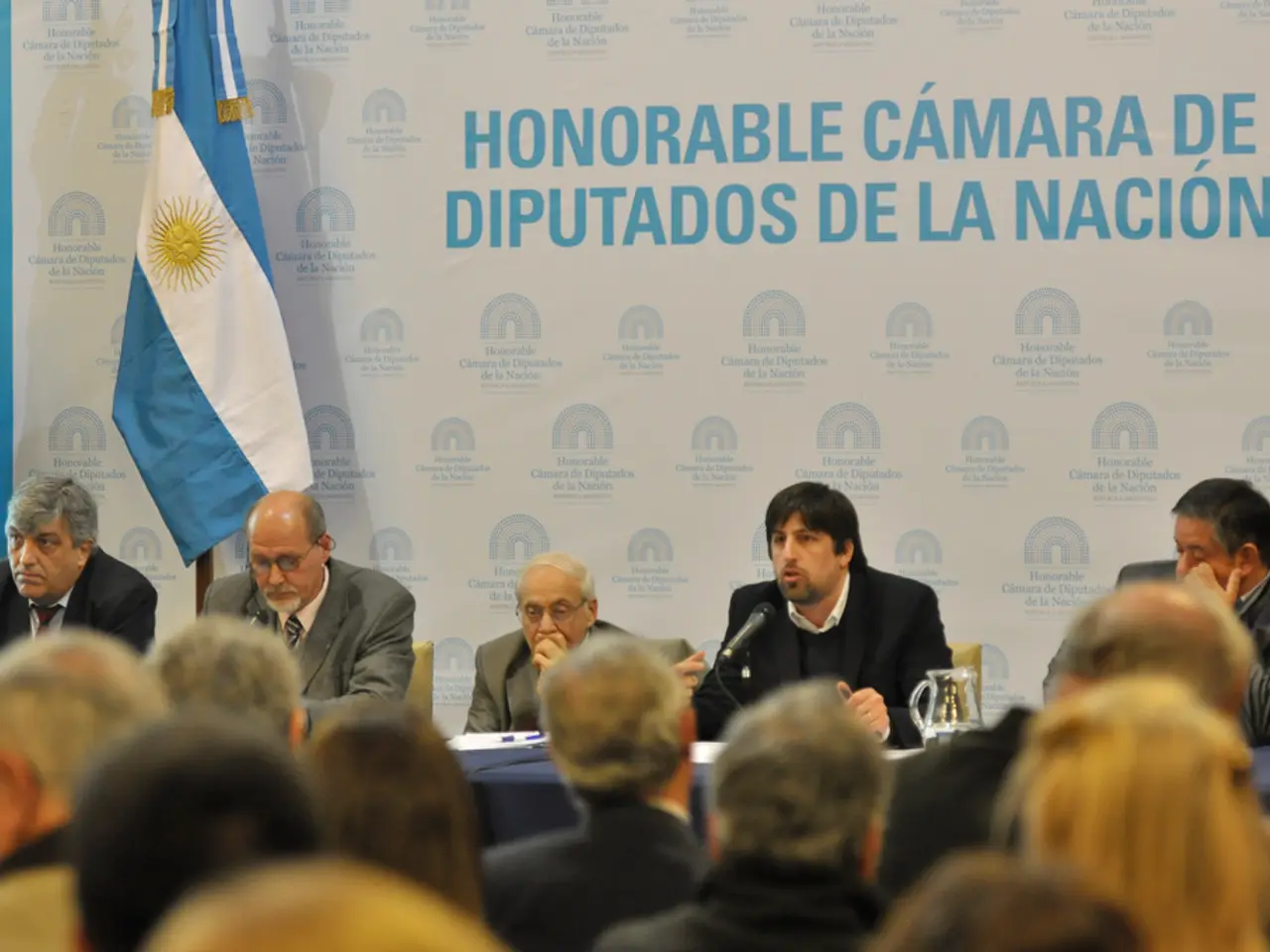CDU/CSU suffers vote loss following judicial dispute
In the political landscape of Germany, a recent poll conducted by Insa between July 14 and 18, 2025, has shed light on the changing tides of voter support.
The Social Democrats (SPD) and the Greens, along with the Left and the Free Democrats (FDP), have maintained their polling numbers since the previous week, with the SPD holding steady at 15%, the Greens and the Left parties each at 11%, and the FDP at 3%.
However, the Union (CDU/CSU) has experienced a slight decline, dropping one percentage point to 27%, according to the survey. The Union's drop in support can be attributed to a dispute over a judicial appointment, which has seemed to affect their voter base more than other parties.
On the other hand, the Alliance "Sahra Wagenknecht" (BSW) has seen a slight increase, gaining one percentage point and potentially securing a spot in the Bundestag with 5% in the current polls.
The Alternative for Germany (AfD) has closed the gap with the Union, now standing at 24%, three percentage points behind CDU/CSU. Yet, the AfD's gap with the Union has not narrowed since the dispute over the judicial appointment.
Other parties account for 4% in the polls, with no significant changes observed since the judicial appointment dispute.
Notably, former Federal Justice Minister Marco Buschmann (FDP) has been vocal in the debate over the judicial appointments, criticising the politicization of the process and suggesting a procedure similar to a papal election to avoid public and partisan influence.
The polling numbers for the other parties have not significantly changed since the previous week, indicating a stable political climate despite the ongoing dispute.
Read also:
- United States tariffs pose a threat to India, necessitating the recruitment of adept negotiators or strategists, similar to those who had influenced Trump's decisions.
- Weekly happenings in the German Federal Parliament (Bundestag)
- Southwest region's most popular posts, accompanied by an inquiry:
- Discussion between Putin and Trump in Alaska could potentially overshadow Ukraine's concerns








